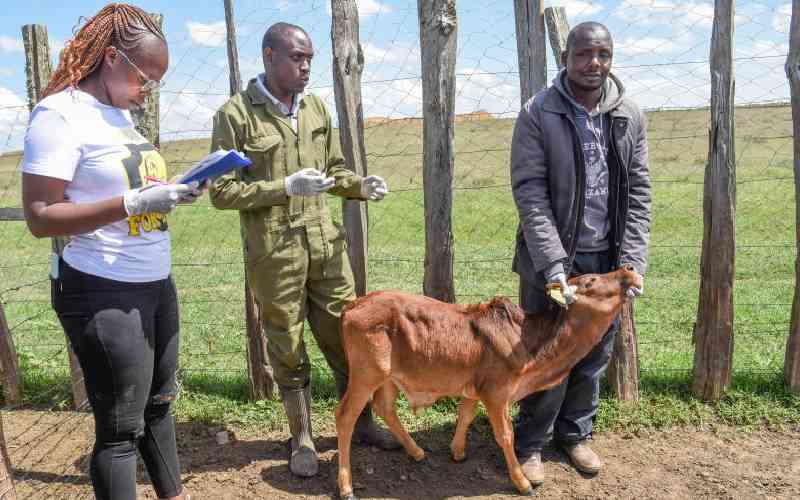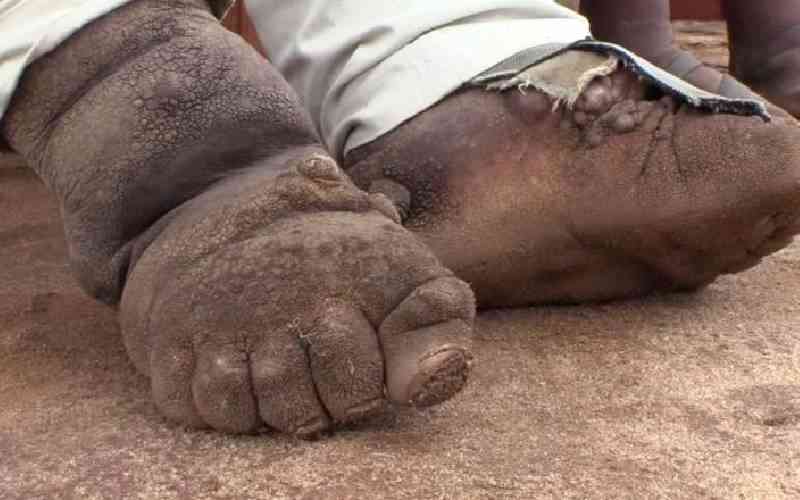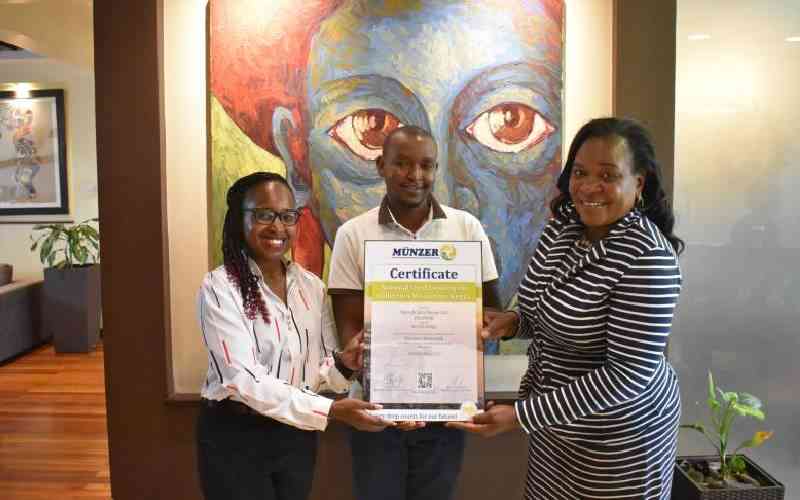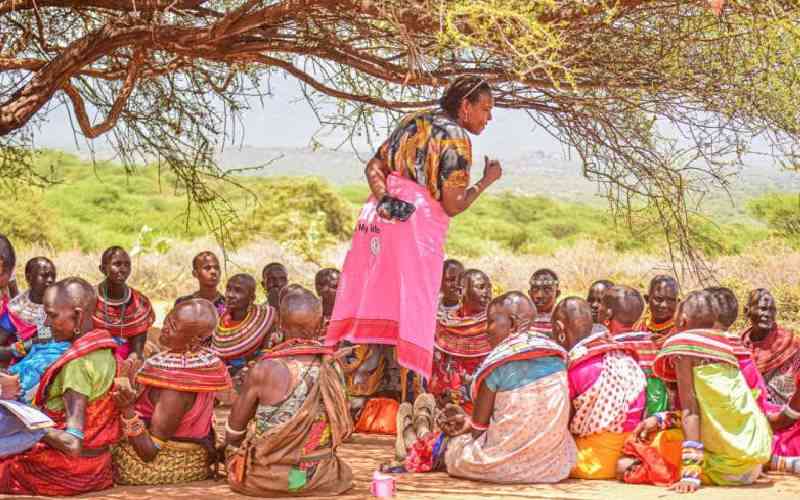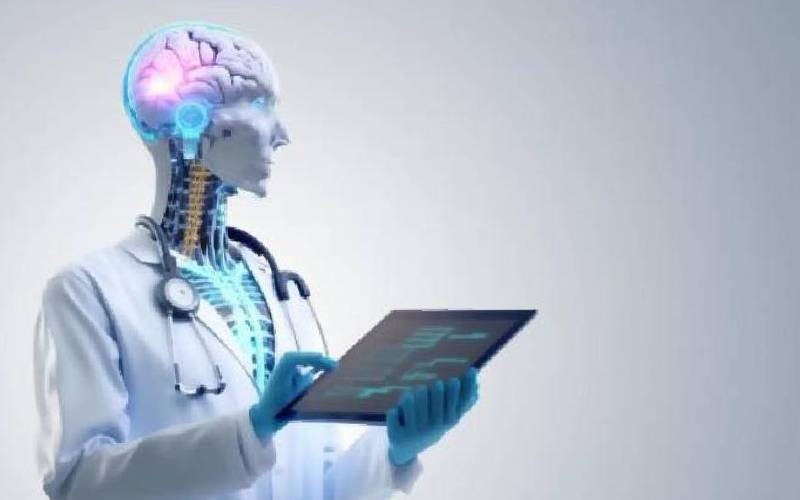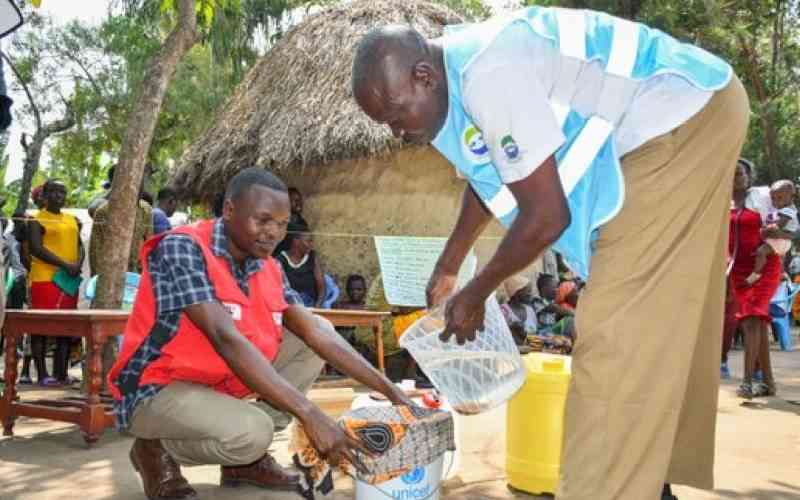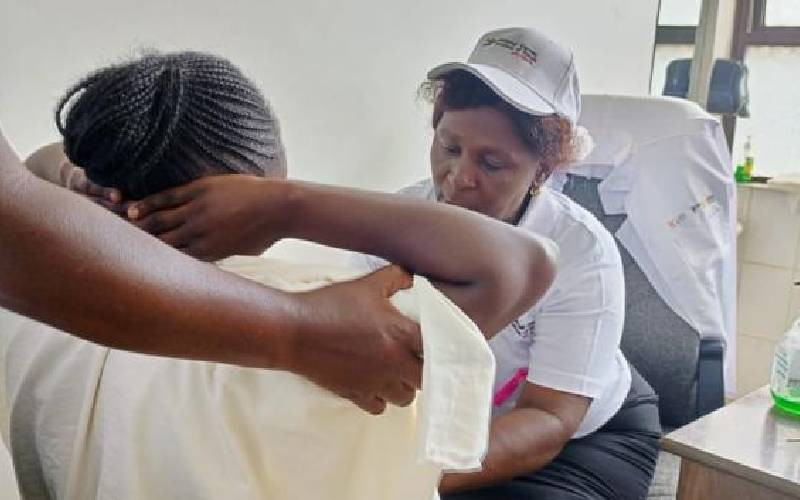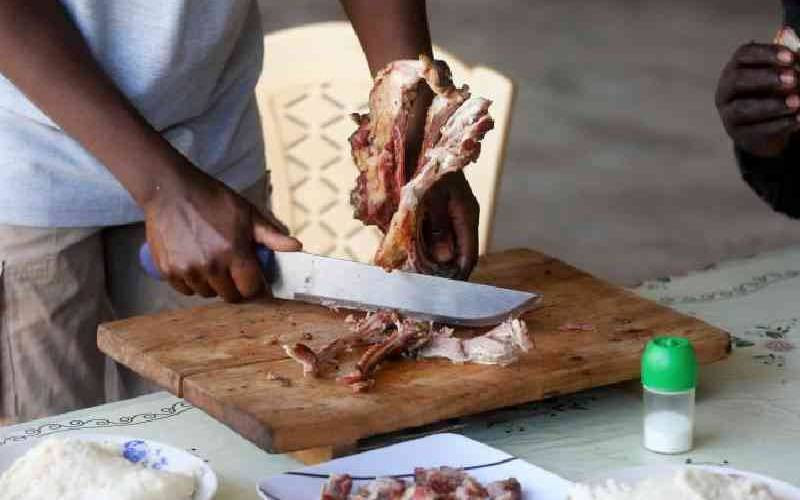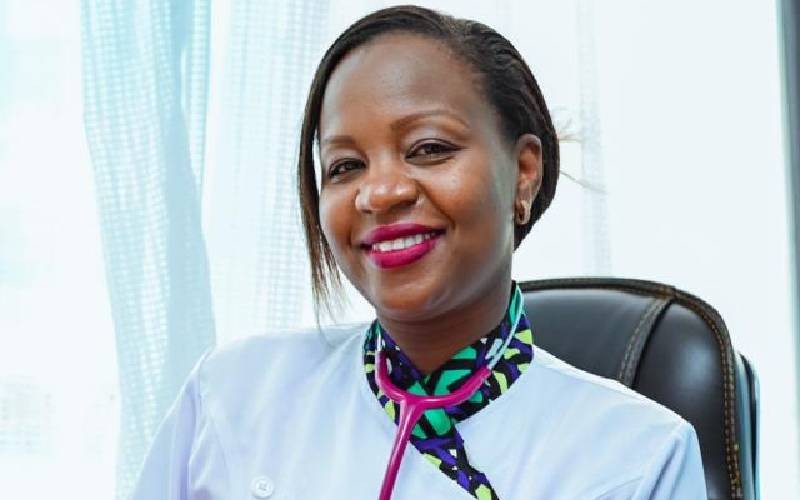
Dr Peninah Musyoka, now a paediatrician, was playing with her siblings outside their home in Yatta in Machakos County as their mother was preparing porridge. When it was ready, they all went inside but continued playing on a springy bed in the kitchen area.
But alas! Peninah jumped high, missed the bed and landed on the hot pot of porridge, scalding her back. She was rushed to Matuu hospital where nurses dressed her wounds, and this one medic kept checking up on her, ensuring she was not in pain.
It was from the concerns of that medic that she decided to become a doctor and even began playing doctor in childhood role-play games.
"Everybody including my parents, siblings and playmates knew I would be a doctor, not just any doctor, but a children's doctor and so even as we played, we started including scenes with doctors which was usually not the case," she recalls. "I would be the doctor because I was the one who had seen how they treat people."
She then began cultivating good grades with zeal in primary school which earned her a place to Machakos' Girls School where her dream was cemented. Her teacher noted her interest in medicine and urged her towards sciences. They even brought medical doctors during the career week for motivation.
"My Chemistry teacher always told me that I needed science subjects more, and languages as well, so I put more efforts into such subjects and did quite well," offers Dr Musyoka who later proceeded to the University of Nairobi- Medical School where it was fun until traumatizing human anatomy classes started. But her father encouraged her.
"Our lecturer told us, 'if you pass through the first door and out through the second door, then you are meant for this, but if you can't go through the second door, think about your decision,'" says Dr Musyoka who recalls how "the smell of formalin hit my eyes and nose, and as we went through the first room, I was just fine until we got to the next door which was leading into the morgue."
Internship was the most challenging period in her training as she came face to face with real patients and their real issues pretty different from theories taught in class.
Says Dr Musyoka: "You meet patients involved in accidents, and you have to stabilize them unlike before when we found them already stabilized, and that is why most find internship overwhelming and the worst comes when you happen to lose a patient in the process."
When it happens, one is left questioning what could have been done differently to save a life and this shakes one's self-confidence with reassurance from superiors.
Internship saw Dr Musyoka rotate in all departments, but she had a special interest in the pediatric ward where she spent most of her time with children.
After internship, she was posted Marsabit, a county then with few hospitals and fewer specialists before devolution. Most patients were referred to Isiolo for specialized treatment and surgeries.
"Sometimes a referral was not possible especially with pregnant mothers as doing so would kill them due to the bad roads," she says, "and most reported to hospital late after noticing they had obstructed labour."
That meant she had to operate on them, most times alone and with no one to administer anaesthetics, which often scared her.
She recalls one incident at the operating table when a nurse told her that the patient had stopped breathing. She stopped the operation to resuscitate the young mother, and thankfully, she survived.
Dr Musyoka knew "if I transfer the young mother to Isiolo, she will die on the way, and if I don't operate on her, she will still die, so the best way was to give it my best shot because that was the only chance of survival and I am glad I saved both the mother and the baby."
Then there was the two-year-old who was brought vomiting blood. She almost gave up after not finding the diagnosis for cause of the bleeding.
A nurse asked if she had checked the child's mouth and that was when she realized the importance of a full check-up. The blood was from a liver fluke stuck in the mouth of the baby which she removed by placing a spoon of water near it and it fell off! That taught her the value of listening to people.
Devolution changed healthcare in Marsabit, what with more hospitals, with equipment and medics.
Her love for children saw her taking her Master's degree in paediatrics and child care at the University of Nairobi and after her graduation, she returned to Machakos County where she was then stationed.
In Machakos, one leading cause of child mortality is gum scrubbing or gum mutilation- a common practice in the Ukambani region where teething children are taken to a grandmother for gum scrubbing.
The old women use chemicals and ash to scrub the swollen gum to remove the pus which leads to severe diarrhea and sepsis with some children dying if not treated early.
Dr Musyoka laments that despite "despite educating parents on this issue of gum scrubbing young mothers still take their children to their mothers-in-law and by the time the child is brought to the hospital, it is usually late."
The paediatrician has creating awareness through the media and public barazas besides advocating for broadening of the National Hospital Insurance Fund (NHIF) coverage to include more services to children.
Dr Musyoka cites the example of pregnant mothers requiring supplements but "the may not get through NHIF as it's considered a luxury yet some may not afford them leading to pre-term deliveries which is more expensive for the mothers."
"My biggest desire is to see children not just surviving but thriving," says Dr Musyoka who loves readings novels, dancing or travelling with her family during her free time.
 The Standard Group Plc is a multi-media organization with investments in media platforms spanning newspaper print
operations, television, radio broadcasting, digital and online services. The Standard Group is recognized as a
leading multi-media house in Kenya with a key influence in matters of national and international interest.
The Standard Group Plc is a multi-media organization with investments in media platforms spanning newspaper print
operations, television, radio broadcasting, digital and online services. The Standard Group is recognized as a
leading multi-media house in Kenya with a key influence in matters of national and international interest.


